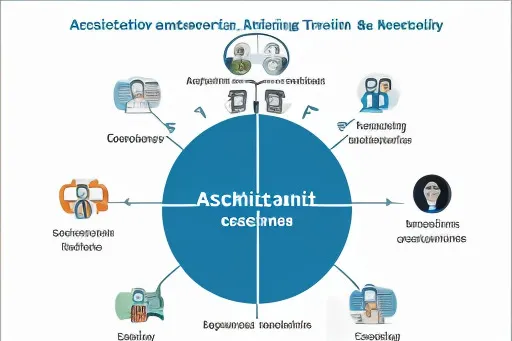Attachment Theory: Understanding Social Work Attachment Theory


Introduction to Attachment Theory
Attachment theory is a widely recognized framework that provides social workers with a valuable lens to understand human behavior, particularly in the context of relationships. First developed by John Bowlby in the 1950s, attachment theory posits that infants have innate behaviors that aim to ensure their caregivers meet their needs.
These behaviors include crying, making eye contact, clinging, and smiling.
The Importance of Attachment Theory for Social Workers
Given the significant role that attachment theory plays in understanding relationships, it is essential for social workers to receive comprehensive training in this area. Attachment theory serves as a foundation for defining and examining the relationship between primary caregivers and infants or young children.
By understanding the various attachment types, social workers can effectively support children and families in developing secure and healthy attachments.
Bowlby’s Four Stages of Attachment
In attachment theory, Bowlby identified four stages of attachment that infants typically go through. These stages include:
-
Pre-attachment (birth to 6 weeks): Infants instinctively form bonds with primary caregivers through behaviors such as smiling and crying.
-
Attachment in the making (6 weeks to 6-8 months): Infants begin to develop a preference for familiar caregivers and show distress when separated from them.
-
Clear-cut attachment (6-8 months to 18 months to 2 years): Infants form strong emotional bonds with their primary caregivers and actively seek their presence and comfort.
-
Formation of a reciprocal relationship (18 months to 2 years and onwards): As children grow older, their attachment relationships become more reciprocal, with children being able to understand and respond to their caregiver’s needs.
The Influence of Attachment Theory on Social Work Practice
Attachment theory has a profound impact on the identity and practice of children and family social work. It provides a framework for social workers to understand the dynamics of attachment relationships and guide their interventions.
By incorporating attachment theory into their practice, social workers can offer children and families a safe haven and secure base, promoting healthy development and well-being.
Training in Attachment Theory for Social Workers
Training in attachment theory is crucial for social workers to enhance their understanding of relationships and effectively support individuals and families. By acquiring in-depth knowledge of attachment theory, social workers can offer interventions that are informed by a deep understanding of the impact of early attachment experiences on individuals’ lives.
Applying Attachment Theory in Social Work Practice
Attachment theory can be applied in social work practice through various approaches, such as emotion coaching. Social workers can provide support and guidance to individuals and families by helping them develop emotion regulation skills and promoting secure attachment relationships.
By using attachment theory as a guiding framework, social workers can strengthen the resilience and well-being of their clients.
Conclusion
In conclusion, attachment theory serves as a vital tool for social workers in understanding and addressing human behavior, particularly in the context of relationships. By receiving comprehensive training in attachment theory, social workers can offer effective support to individuals and families, promoting secure attachments and healthy development.
As social workers navigate the complexities of their practice, incorporating attachment theory can serve as a powerful foundation for fostering positive change.
Best Recommended Product: Social Work Attachment Theory: A Practical Guide


Please note that the author of this blog article is not affiliated with any of the recommended products or services mentioned in this article.







